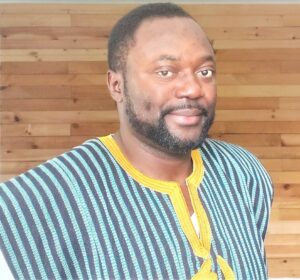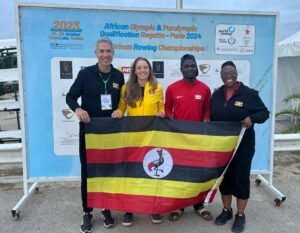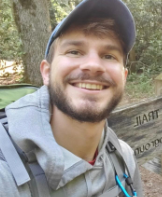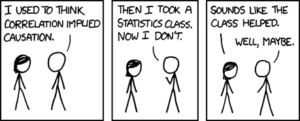Evaluation in the Age of Emerging Technologies
By Richard Amoako
Greetings! My name is Richard Dickson Amoako. I am a second year PhD. student in Evaluation, Statistics, and Methodology at the University of Tennessee, Knoxville. My research interests focus on areas such as program evaluation, impact evaluation, higher education assessment, and emerging  technologies in evaluation.
technologies in evaluation.
As a lover of technology and technological innovations, I am intrigued by technological advancements in all spheres of our lives. The most recent development is the increased development and improvement of artificial intelligence (AI) and machine learning (ML). As an emerging evaluator, I am interested in learning about the implications of these technologies for evaluation practice.
Throughout this blog post, I explore the implications of these technologies for evaluation including relevant technologies useful for evaluation, how these technologies can change the conduct of evaluation, the benefits and opportunities for evaluators, as well as the challenges and issues with the use of these emerging technologies in evaluation.
Relevant Emerging Technologies for Evaluation
Emerging technologies are new and innovative tools, techniques, and platforms that can transform the evaluation profession. These technologies can broadly be categorized into four groups, data collection and management tools, data visualization and reporting tools, data analysis and modeling tools, and digital and mobile tools. Three examples of the most popular emerging technologies relevant to evaluation are artificial intelligence, machine learning, and big data analytics.
- Data collection and analysis: AI and ML can help evaluators analyze data faster and more accurately. These technologies can also identify patterns and trends that may not be apparent to the naked eye. Additionally, emerging technologies have also led to new data collection methods, such as crowdsourcing, social media monitoring, and web analytics. These methods provide valuable opportunities for evaluators to access a wider range of data sources and collect more comprehensive and diverse data.
- Increased access to data: Social media, mobile devices, and other technologies have made it easier to collect data from a wider range of sources. This can help evaluators gather more diverse perspectives and ideas.
- Improved collaboration: Evaluators can collaborate more effectively with the help of video conferencing, online collaboration platforms, and project management software, regardless of where they are located.
- Improved visualization: Evaluators can present their findings in a more engaging and understandable way by using emerging technologies like data visualization software and virtual reality.
Challenges and Issues Associated with Emerging Technologies in Evaluation
While emerging technologies offer many exciting opportunities for evaluators, they also come with challenges. One of the main challenges is keeping up to date with the latest technologies and trends. Evaluators should have a solid understanding of the technologies they use, as well as the limitations and potential biases associated with those technologies. In some cases, emerging technologies can be expensive or require specialized equipment, which can be a barrier for evaluators with limited resources.
Another challenge is the need to ensure emerging technologies are used ethically and responsibly. As the use of emerging technologies in evaluation becomes more widespread, there is a risk that evaluators may inadvertently compromise the privacy and security of program participants. In addition, they may inadvertently misuse data. To address these challenges, our profession needs to develop clear guidelines and best practices for using these technologies in evaluation.
To conclude, emerging technologies are revolutionizing the evaluation landscape, opening new opportunities for evaluators to collect, analyze, and use data. With artificial intelligence and machine learning, as well as real-time monitoring and feedback, emerging technologies are changing evaluation and increasing the potential for action-based research. However, as with any advancing technology, there are also challenges to resolve. Evaluators must keep up to date with the latest technologies and develop clear guidelines and best practices. They must also ensure that these technologies are used ethically and responsibly.
Resources
Adlakha D. (2017). Quantifying the modern city: Emerging technologies and big data for active living research. Frontiers in Public Health, 5, 105. https://doi.org/10.3389/fpubh.2017.00105
Borgo, R., Micallef, L., Bach, B. McGee , F., Lee, B. (2018). Information visualization evaluation using crowdsourcing. STAR – State of The Art Report, 37(7). Available at: https://www.microsoft.com/en-us/research/uploads/prod/2018/05/InfoVis-Crowdsourcing-CGF2018.pdf
Dimitriadou, E., & Lanitis, A. A. (2023). Critical evaluation, challenges, and future perspectives of using artificial intelligence and emerging technologies in smart classrooms. Smart Learn. Environ, 10, 12. https://doi.org/10.1186/s40561-023-00231-3
Huda, M., Maseleno, A., Atmotiyoso, P., Siregar, M., Ahmad, R., Jasmi, K. A., & Muhamad, N. H. N. (2018). Big data emerging technology: Insights into innovative environment for online learning Resources. International Journal of Emerging Technologies in Learning (iJET), 13(01), pp. 23–36. https://doi.org/10.3991/ijet.v13i01.6990
Jurafsky, D., & Martin, J. H. (2009). Speech and Language Processing: An Introduction to Natural Language Processing, Computational Linguistics, and Speech Recognition. Prentice Hall.
World Health Organization. (2016). Monitoring and evaluating digital health interventions: A practical guide to conducting research and assessment. WHO Press. Available at: https://saluddigital.com/wp-content/uploads/sites/9/2019/06/WHO.-Monitoring-and-Evaluating-Digital-Health-Interventions.pdf









